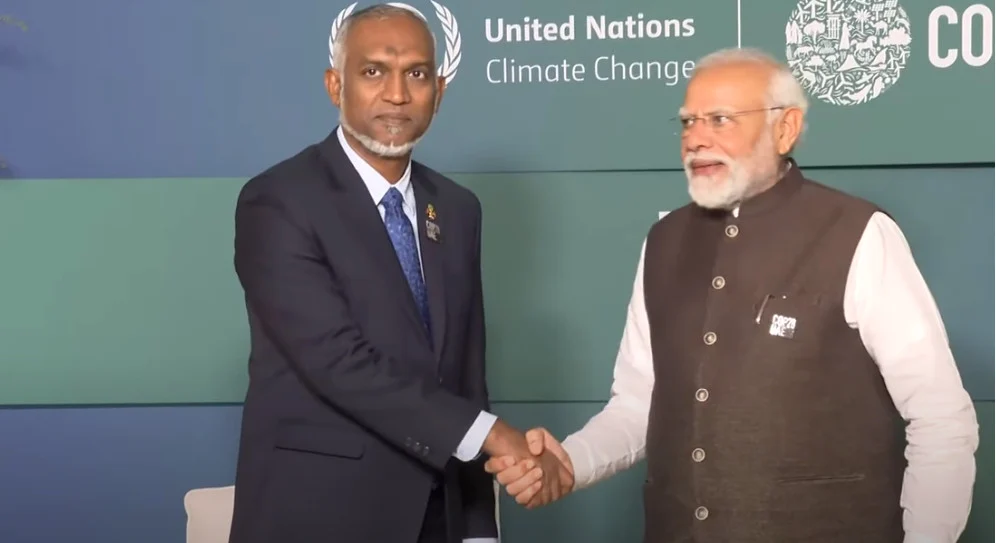Anwarulhaq
New Delhi: The newly elected Maldivian government under President Mohamed Muizzu has indicated a shift away from the pro-India stance of the past by not renewing a Memorandum of Understanding (MoU) on hydrography cooperation recently. Newly elected President Mohammed Muizzu pledged during his campaign to remove Indian troops and restore Maldives’ sovereignty. This shift became evident when the Maldives Cabinet decided against renewing the MoU for cooperation in hydrography, signalling a reversal of the pro-India stance held by the prior administration.
The hydrography MoU, signed in 2019 during Prime Minister Narendra Modi’s visit, focused on studying ocean data, maps, and water body attributes. It also supported activities related to navigation safety, economic development, defence, research, and environmental protection. However, the new government aims to enhance these capabilities within its military, expressing a desire to conduct its surveillance and policing operations in its waters independently.
The Maldives recently also skipped a recent security conclave involving India, Sri Lanka, and Mauritius and expressed interest in collaborating with China on various fronts, which raised concerns in India, given China’s increased involvement in the Maldives, reflected in its desire to conduct deep-water exploration in the Indian Ocean.
Muizzu’s victory in the recent elections, defeating the incumbent Ibrahim Mohamed Solih, has raised questions about the future trajectory of the Maldives’ foreign policy. Muizzu’s party, known for its favorable stance toward Chinese investments, challenges the prior administration’s pro-India stance.
Overall, the evolving political landscape in the Maldives signals a potential reorientation in foreign policy, emphasizing a need for India to navigate a changing relationship with its traditionally close neighbor.

